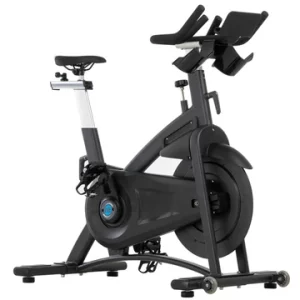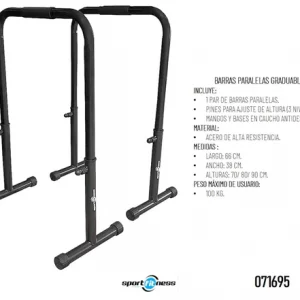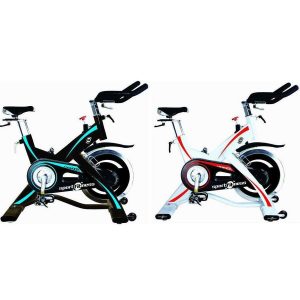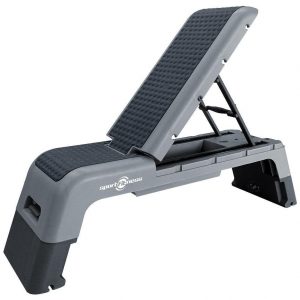Conoce nuestros nuevos simuladores de ciclismo de la marca Tacx y sus beneficios
Llega a Tienda Sport Fitness los nuevos simuladores de ciclismo de la marca Tacx, un producto que te ayudará en el entrenamiento sin necesidad de salir de la comodidad y seguridad de tu hogar. En este artículo te contaremos los beneficios que te ofrece este simulador y te animes a tenerlo.
Los simuladores de ciclismo se transforman en tu aliado para nunca dejar de entrenar, no depender del clima, ni de las restricciones que pueden implementar en tu ciudad por el Covid-19.
Beneficios:
- Optimizar el tiempo de pedaleo, al entrenar con el simulador de la marca Tacx vas a aumentar de manera notable el tiempo efectivo de pedaleo, ya que no debes detenerte por ningún motivo y así obtener mejores resultados en tu entrenamiento.
- Mejorar la técnica de pedaleo, la concentración es mucho mayor, puesto que no debes estar atento de los peatones, conductores, ni ningún otro factor que puedas encontrar en el recorrido, así te puedes centrar en el pedaleo.
- Controlar el esfuerzo físico, con el simulador podrás llevar una precisión de la intensidad, velocidad y llevar un entrenamiento más fuerte ya que eres tú quien define la potencia y no depende del terreno, inclinaciones o inclusive del viento.
- Mayor entrenamiento mental, este tipo de entrenamiento conlleva mucha concentración para poder cumplir las metas que establezcas. Ya que con el simulador eres tú quien determina las cargas de trabajo de tus día a día.
- Potenciar el entrenamiento, con este producto puedes entrenar de manera más seguida, en ocasiones el trabajo, los horarios, el clima, entre otras situaciones pueden restringir tus salidas.
- Mejorar la actividad física, con el simulador podrás cambiar los hábitos y tener un cambio en tu salud y en tu estado, algunos temen salir y no soportar una ruta de ciclismo, sin embargo con este producto te puedes ir preparando para realizar una ruta.
Estos son algunos de los beneficios que te ofrece el simulador de la marca Tacx, además te recomendamos ubicar este producto en un lugar con buena ventilación e iluminación, con ropa adecuada y siempre con la hidratación necesaria para que puedas realizar tu entrenamiento en un ambiente agradable y puedas cumplir con todas tus metas.
Nuestros destacados

Set De Movilidad 3 EN 1 – Sport Fitness 71465
Original price was: $118.795.$95.036Current price is: $95.036. IVA Comprar Ahora
Lazo Para Salto JR4317 – Sport Fitness 71588
Original price was: $63.398.$50.718Current price is: $50.718. IVA Comprar Ahora
Bicicleta Spinning Magnética Benevento – 70396
Original price was: $3.590.517.$2.872.413Current price is: $2.872.413. IVA Comprar Ahora





